
The traditional approach in education, to a greater extent built on compartmentalization of the knowledge into various disciplines which contributes to a single disciplinary approach. In fact, this approach has a lot of limitations in terms of finding effective and potential solutions related to any domain of studies. However, this constraint has led to many collaborative approaches in the educational scenario. The harmonious combination of the concepts and practices of various disciplines has led to effective solutions that have accelerated the developments in all disciplines.
The New Educational Policy 2020 has given due importance to collaborative approaches in the Higher Educational system. The key pillar of NEP 2020 is liberal education, which emphasizes that education should be holistic and multidisciplinary. This approach sensitises students to interconnect all sorts of knowledge and inquiry to derive effective solutions. This approach helps the learner to overcome learning difficulties and attain overall development.
Furthermore, NEP 2020 requires a flexible and innovative curriculum that includes credit-based courses and projects in the domains of community engagement and service, environmental education, and value-based education
An analysis of the various models of collaboration and integration of disciplines is discussed in this article. A topology of collaboration can be sorted out as Multidisciplinary, Interdisciplinary, and Transdisciplinary.

Multidisciplinary Approach: In this approach, one tries to depict a holistic understanding of the issue or scenario through multiple disciplines. As in the interdisciplinary approach here we make use of the concepts and practices in various disciplines for a clear understanding of the situation, but do not contribute to a new field of study. A multidisciplinary approach makes an individual approach a problem through different perspectives with the help of allied disciplines.
The New Educational Policy 2020 insists on a Multidisciplinary approach in Higher Education to broaden the scope of Higher Education through diversified fields of study and ensure flexibility and autonomy to the learner in the selection of the field of study. For instance, to have a clear understanding of the Mullaperiyar issue between the states of Kerala and Tamil Nadu one must analyze it in various perspectives historical, political, sociological, technological, and geographical to have a complete understanding of the situation. Another instance is if we need to study a river, we could approach it with a geographical perspective regarding its origin and various minerals deposited in its bank; we can learn about it with a historical perspective by studying the various civilizations that flourished on its bank. We can learn it from a biological perspective considering aquatic life and its possibilities. We can approach it through literature by citing the poems and plays where this river is a character. Hence, multidisciplinary approaches broaden the thought process of the scholars and bring clarity to all issues and events.
However, multiple disciplinary approaches can be implemented at an institutional level in many ways providing open courses from varied disciplines under institutions CBCS system, providing vocational programs in various fields of study, offering courses of a program can by faculty from various disciplines, including multidisciplinary courses as electives, promoting students to select electives provided by other departments, teaching a subject in multidisciplinary perspectives, and fostering community engagement in various activities, to name a few.
The close association between the various disciplines in a multidisciplinary scenario will lead to the integration of information, perspectives, and concepts from two or more disciplines of specialized knowledge for an advanced understanding of a scenario or solve problems whose solutions are beyond the scope of a single discipline. Hence this type of association will lead to an interdisciplinary approach to education.
Interdisciplinary Approach: In this approach the concepts, practices and analytical framework of two or more disciplines are integrated for finding solutions of various problems related to discipline. These related disciplines are integrated to form a new field of study for solving higher end problems pertaining to the discipline. For example, Bioinformatics combines molecular biology with computer science. Educational Psychology is an interdisciplinary field of study which combines Education with Psychology. Here, it studies the problems in Education with the help of theories and practices in Psychology to give authentic and effective solutions. This approach led to the development of various new fields of study which are more of an applied and functional nature. Here collaboration and connection are sought between and among disciplines rather than shared themes. An interdisciplinary approach sets an ecosystem of working together of various disciplines in solving a common problem.

From an institutional perspective for adopting interdisciplinary education, we could include more interdisciplinary subjects related to the field of study, for example, Luminescent study between Physics and Zoology, Nanoparticle-based study among Physics, Chemistry, Biotechnology based Biology and technology, Material Science studies between Physics and Chemistry.
Transdisciplinary Approach: This approach implies a joint knowledge production with the help of experts from various sectors and disciplines. Here, collaboration happens across curricula to create a cohesive curriculum which is intended to solve multifaceted problems. Hence In the implementation of a transdisciplinary program we could coordinate the stakeholders within and between departments. This promotes the requirement of cooperation and coordination between disciplines.

For the same reason, in a transdisciplinary curriculum, we have a possibility of merging divergent knowledge bases to understand an issue and to reach potential solutions. Positively, in implementation of a transdisciplinary curriculum, we must identify collaborative partners and foster collaboration departmentally, Institutionally, or even from industrial platforms. Naturally, in a transdisciplinary scenario, a sustained conversation across and beyond disciplinary boundaries are sorted for attainment of new shared ideas. This makes it evident that a transdisciplinary team is based on continuous collaboration among several disciplines by maintaining a protocol to ensure all elements of the ecosystem are included.
Wrapping up, the new educational policy has broken the traditional boundaries of Higher Education and has given more opportunities for collaboration and development of the disciplinary studies to ensure holistic, productive and potential solutions. Positively, in any ranking framework, more consideration are given to the best practices that promote multi-tier collaboration among disciplines and departments which enhance the quality of the curriculum and engagements through collaboration and cooperation among the stakeholders for the attainment of the highest results.
Therefore, it becomes evident that the mark of quality depends on the extent of collaboration and cooperation between departments and stakeholders, further this is attained through multidisciplinary, interdisciplinary, and transdisciplinary approaches in higher educational systems.
Join us for FREE to get instant email updates!
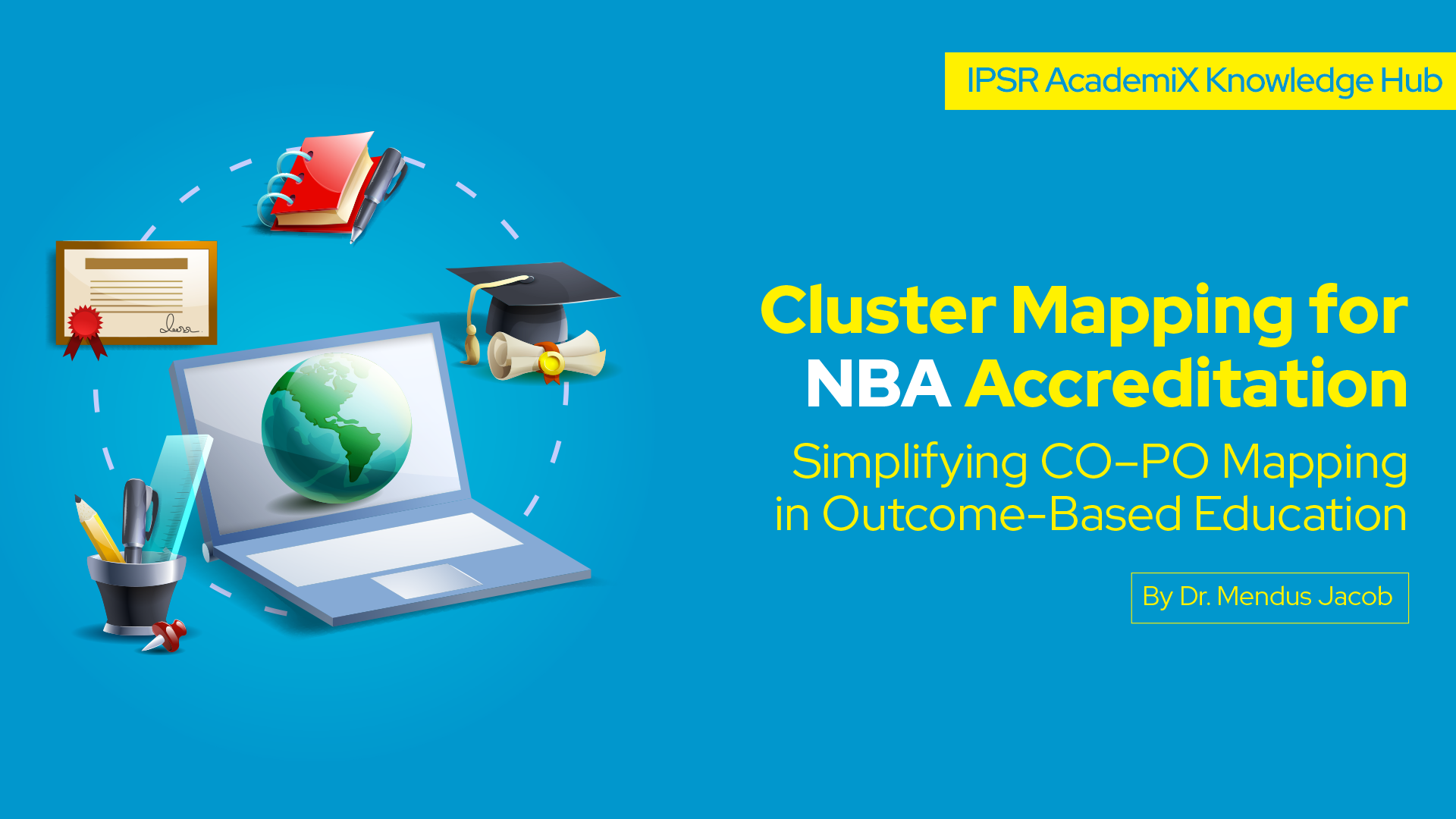
Simplifying CO–PO Mapping in Outcome-Based Education Accreditation by the National […]
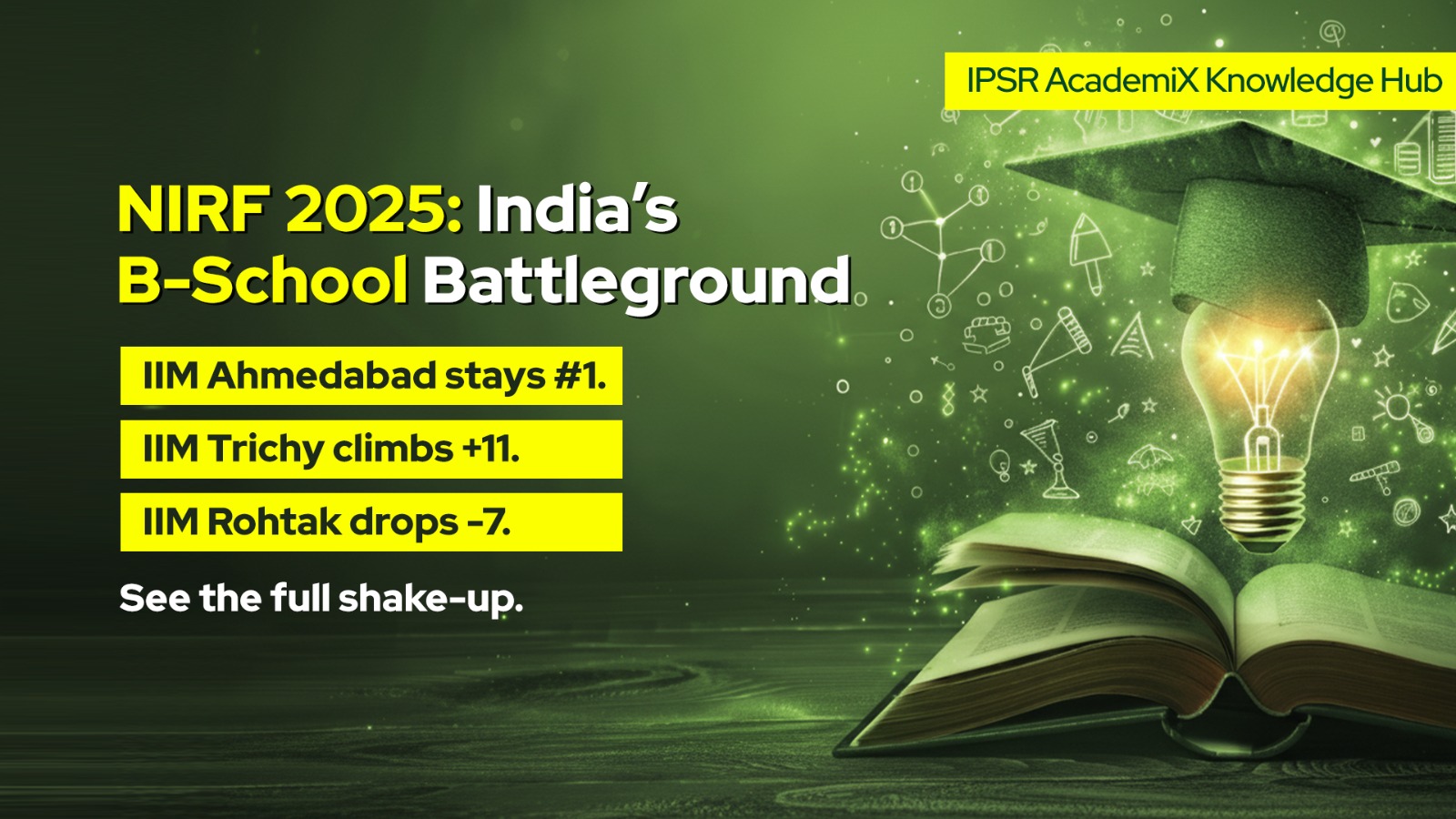
The National Institutional Ranking Framework (NIRF) 2025 results are out, […]
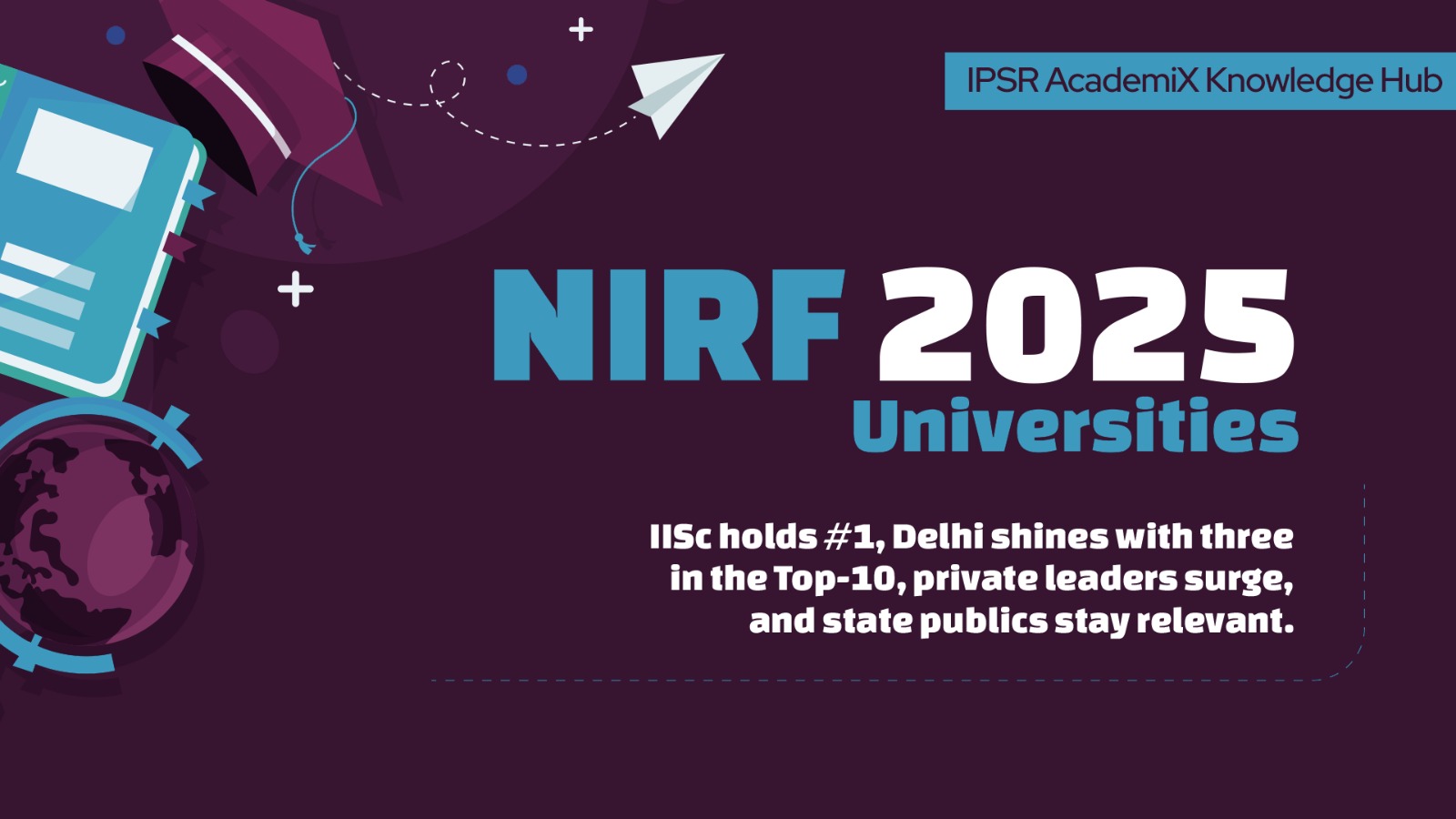
What the Top 100 Rankings Reveal About India’s Universities The […]
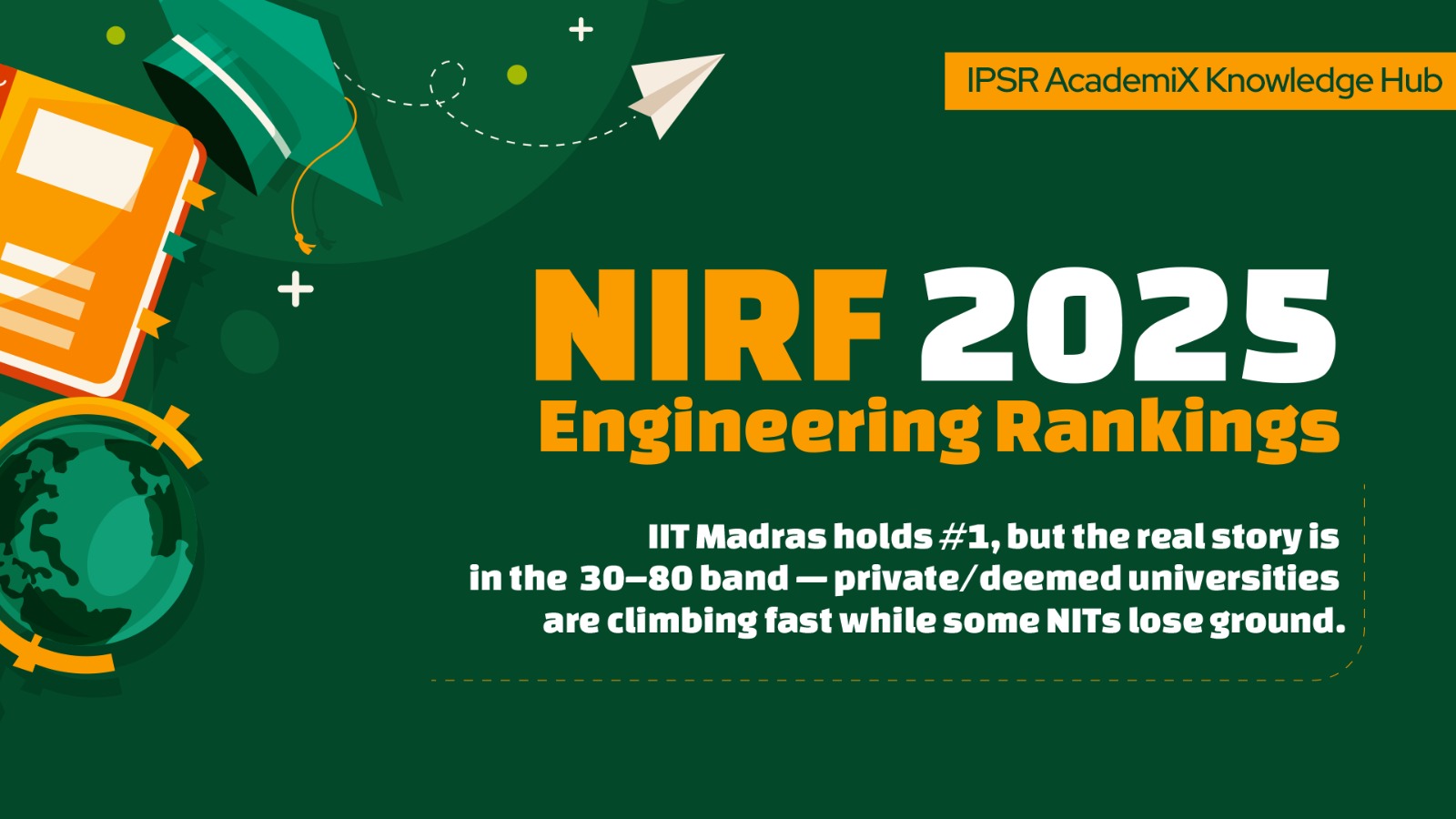
Exploring patterns, trends, and the evolving landscape of technical education […]
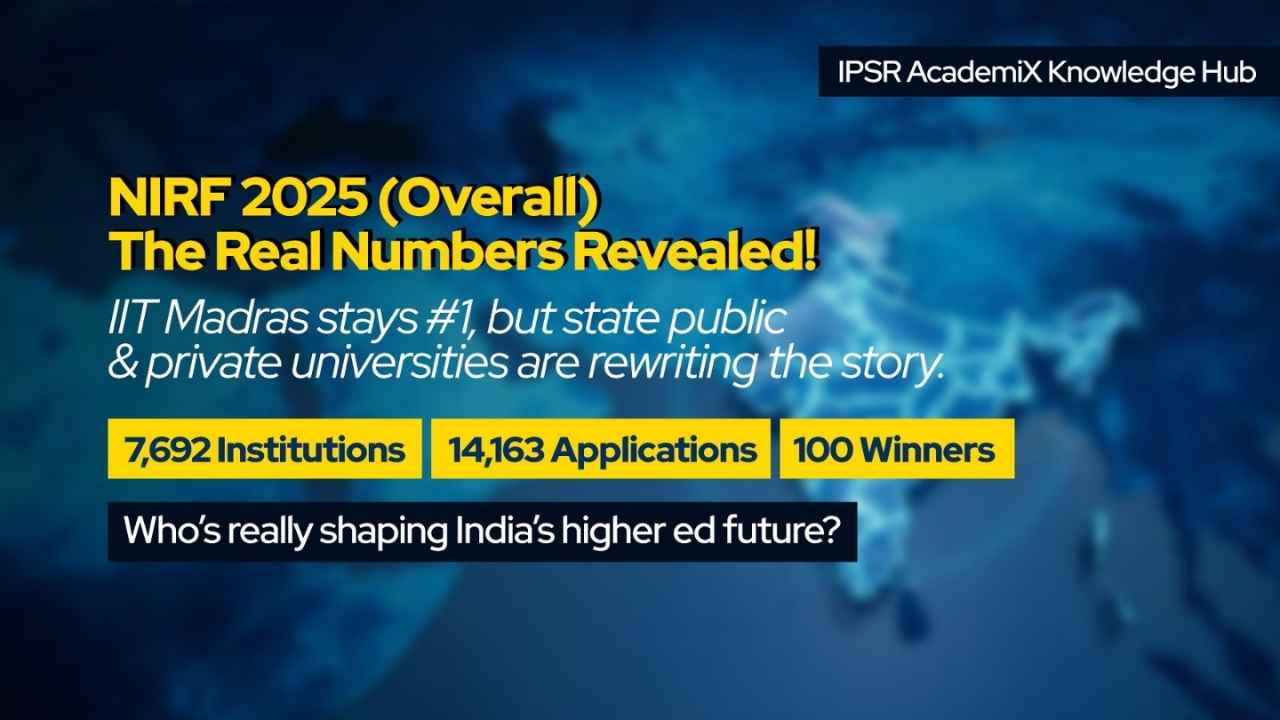
Release date: September 4, 2025 Source: NIRF portal’s Overall Top-100 […]
Thank you
GOOD
Informative session. Very nice
Very good approach for improvement of education in india
Highly Informative.
VERY KNOWLEDGEABLE
informative
Lucid explanation. Thanks a lot.